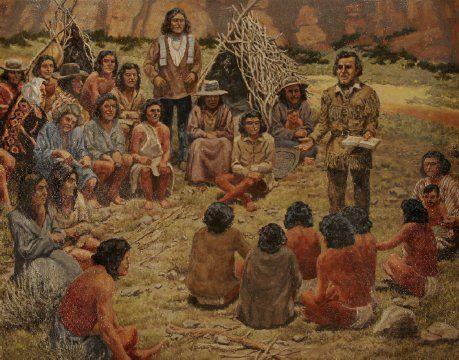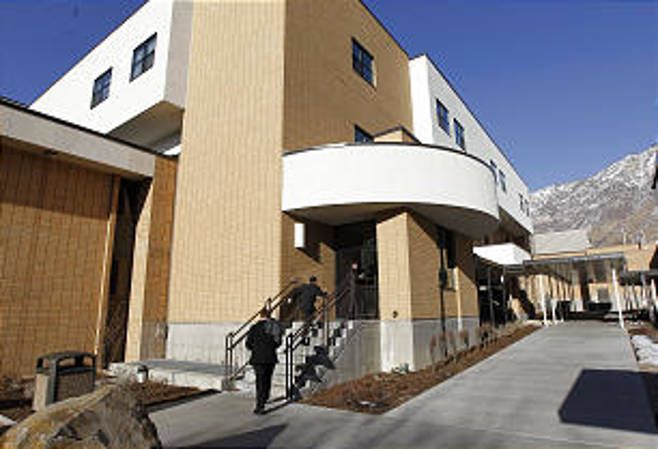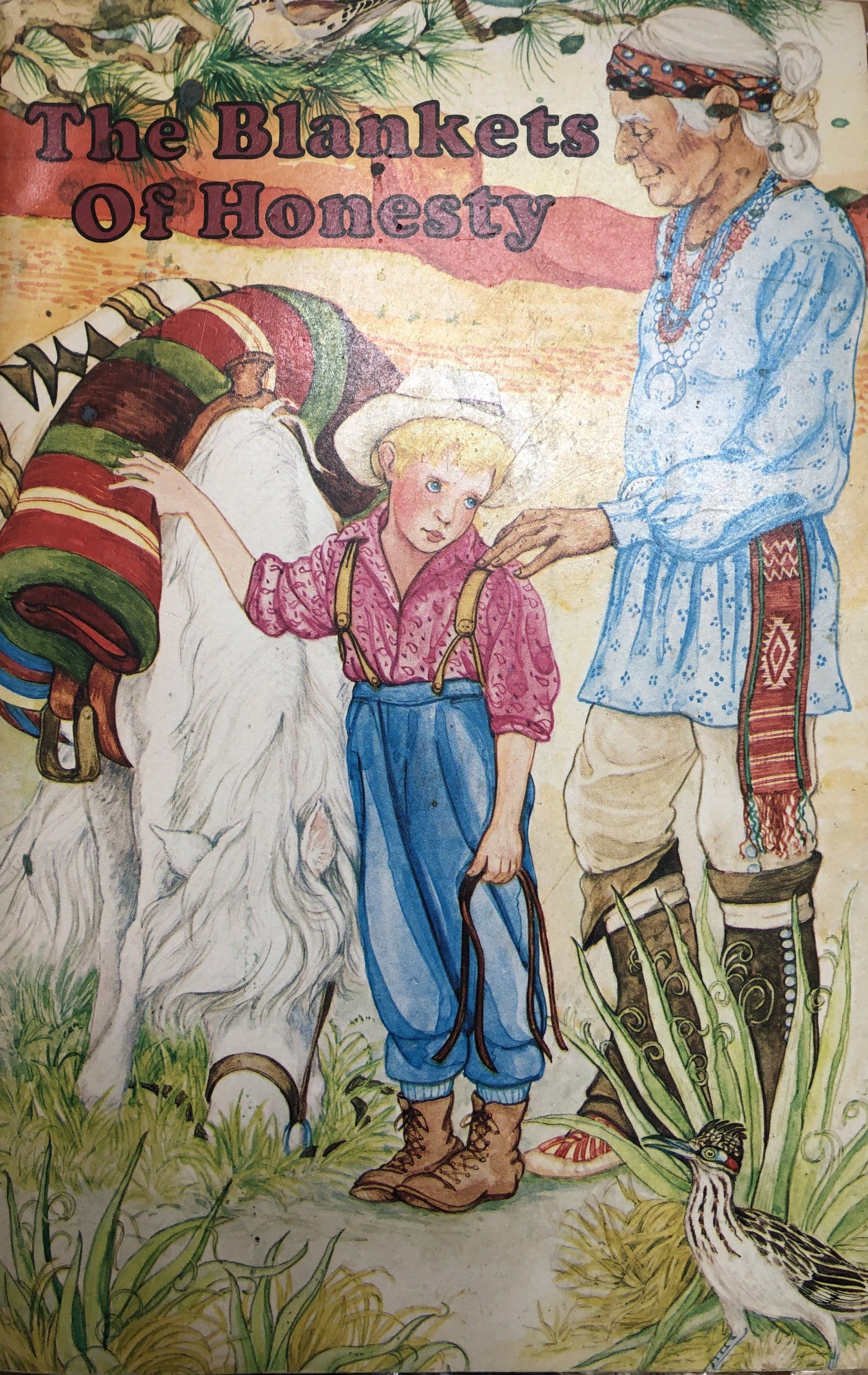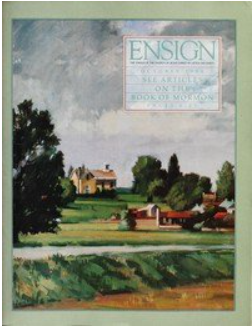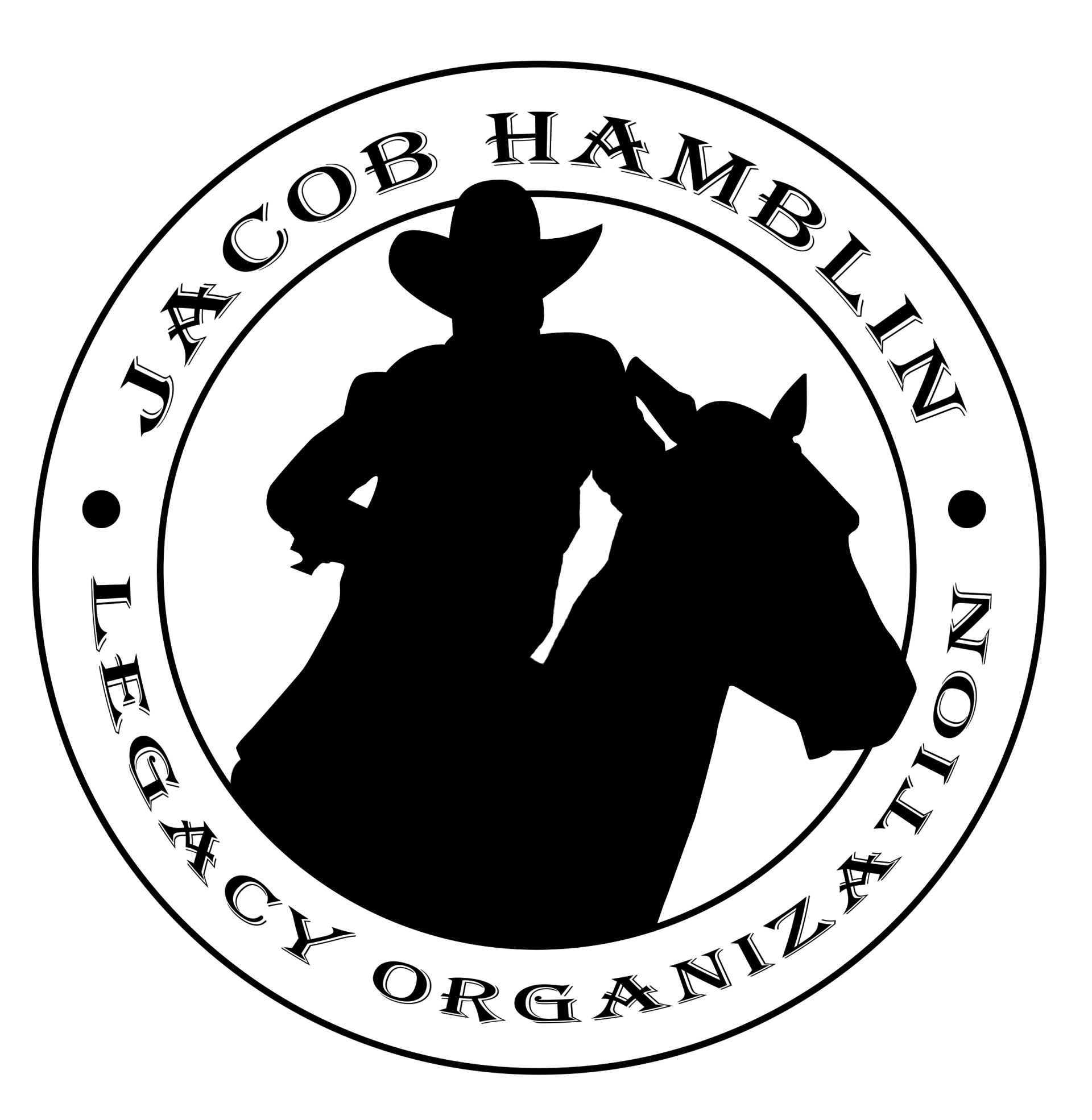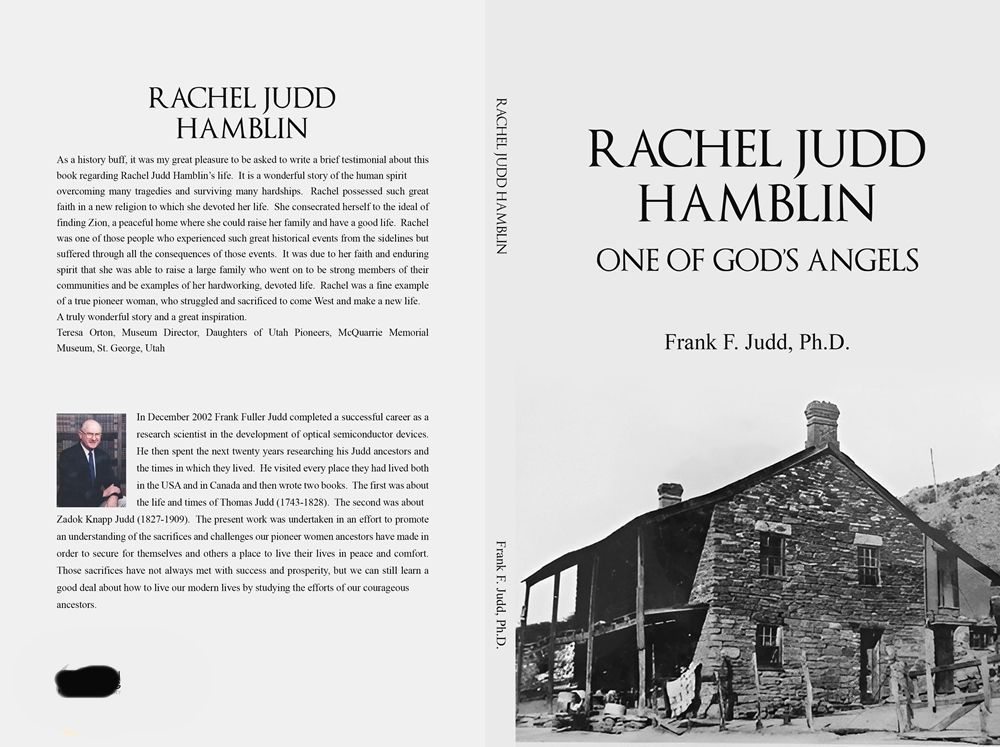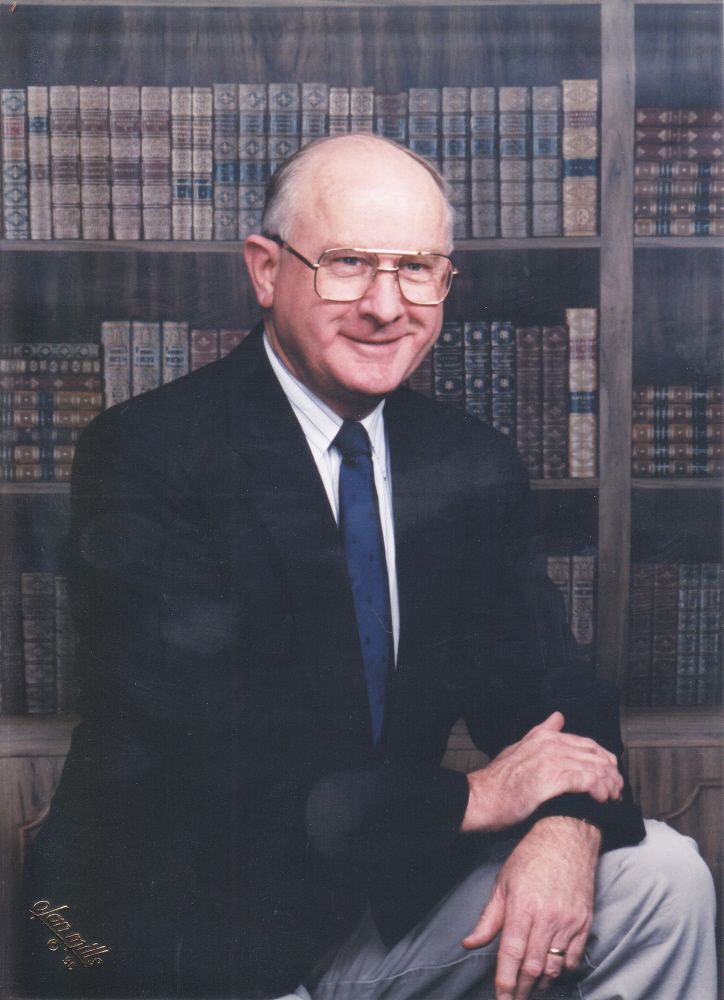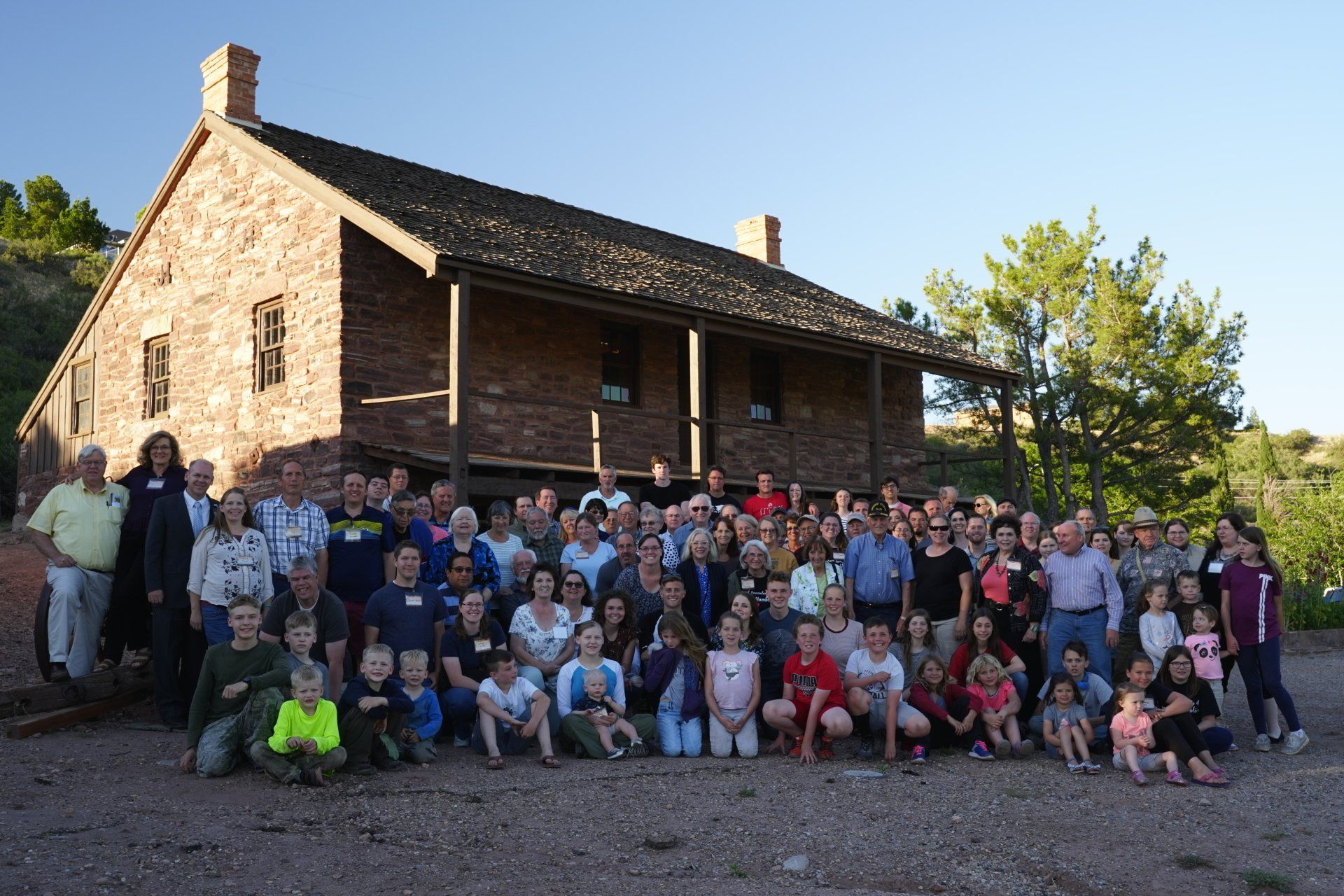Clara Melvina Hamblin Nicoll Staley Family History
Donated by Joan Hamblin
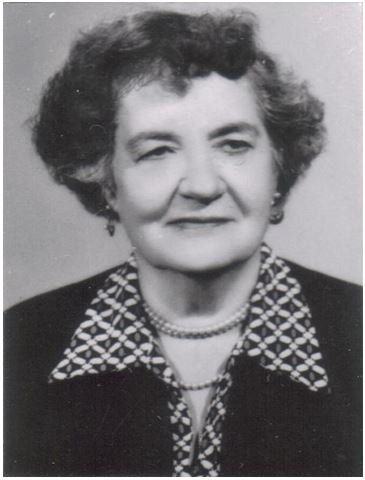
Clara Melvina Hamblin Nicoll Staley
Jacob,
Attached is a biography of Clara Malvina Hamblin Nicoll Staley, youngest daughter of Jacob Hamblin and Sarah Priscilla Leavitt. I thought I sent it earlier, but cannot find an outgoing email to you. Thanks for your work in organizing the Hamblin Family.
Contributed by Colleen Hutchinson
Clara Melvina Hamblin Nicoll Staley
Compiled by Granddaughter Dana Campbell
How remarkable then to read her words as someone young, passionate and romantic, full of song and entertainment, playing the organ and the guitar, adding her singing with that of her husband’s legendary voice. Still enduring were her tremendous wit, her love of Roosevelt and the Democratic Party, her love of nature and its beauty everywhere, her strong, but then unpopular beliefs that children cannot be spoiled by being loved and treated well. Still she mourned her losses, tears flowing whenever she spoke of the death of the three of her thirteen children who died yet babies. She felt that she suffered inordinately because her deep feelings never seemed to be able to harden. But in the same breath she would proclaim God’s great goodness to her that she was able to feel so much joy in sunsets, flowers, ocean and music. Included here are excerpts from her own journal.
March 1934, San Diego, California. Written by Clara Hamblin Staley.
I was born in Kanab,
Kane County Utah November 5, 1876. My father moved his family to Arizona
when I was but two years old. He was called as a pioneer to make
settlements in Arizona with other L.D.S. My father built a two room log
house, plowed ground, set out an orchard of apples, plums and other fruit in
Amity. I had two brothers born in Amity and when I was only six years
old, we moved to Pleasant, New Mexico. This was a very beautiful valley.
Our town was built on the banks of the Frisco River. The ground was
fertile and the climate warm. My father planted another orchard and we had a
lovely farm, flour mill and molasses mill. We could have prospered in
this place but a very dishonest man who sold the land to the Mormons waited
until the houses and land were paid for. Then before he made the deeds out in
their name, sold all the land to a wealthy man and skipped out in the night and
we were all left homeless.
Father had spent
twenty years of his life as a peacemaker and missionary among the
Indians. He had gone through much privation and hardship and was sick and
worn out. Father started back from Round Valley sick and only with his
little grandson Duane eleven years old, with steep mountains and hills to
climb. It took them about ten days to make the trip. Father got
very, very sick and when they got him home he was unconscious. He lived
only three days and died. I remember him lying there all those days with
his eyes closed and never spoke a word. Poor Father, he had done so much
good and was one of the bravest and best men that ever lived.
While we lived in
this beautiful place called Pleasant, I want to relate some of my Indian experiences.
It was the year the Apaches, with old Geronimo at the head, left the
Apache reservation and went across the White and Mogolon Mountains killing
everything and everyone they ran across. One time shortly after father
died, my mother, my two small brothers and myself, with my very big half
brother Joseph Hamblin, and another family started on a trip to Round Valley to
see my sister Ella who had been married more than a year before and had a
little son. And of course we were very anxious to see them. We knew
the Apaches were on the war path and shouldn't have gone. One night we
arrived at a beautiful canyon, a clear stream of water running, lots of wood
and plenty of grass for the horses. I remember the beautiful trees and
flowers, an ideal camping spot. The men with their teams halted and
started to unhitch the horses. My mother rose up so all could hear and
said “We must not stop here; we will all be killed by Indians if we do.
Some of the party said we must stop, our horses are tired and here is
everything we need. Mother made such a fuss, so we all drove on and about
10 o'clock came to a ranch and stopped. A few days later we heard a party
of Negroes camped where we wanted to camp. The Indians came on them while
they were asleep and killed them all. Mother thanked the Lord for her
timely warning and said never again would she tempt fate by traveling when
there was so much danger. We arrived in Round Valley all right, but we had to
get back home. Our sister and her husband went back with us to
Pleasant. Every day we would hear of some one being killed and with fear
and trembling we reached home at last where we were in almost as much danger as
we were on the road.
One night in August
of 1886 my sister Ella came running telling us the Indians were in town.
I was sick in bed with chills and fever, but I was so badly frightened that I
sprang out of bed and got ahead of the rest heading for the store and hotel
(which had a high adobe stockade or fence with port holes around it. Just
as I crossed the bridge over the big wash, I saw an Indian with a red
handkerchief around his forehead pass under the bridge. No one believed
me then, but next day they found moccasin tracks and my brother-in-law’s team
of horses was stolen. That was quite a calamity as the men folk would
freight ore from the Crinny Silver mines near Alma, New Mexico to Silver
City.
On another occasion I
went with my nephew Joe Windsor to milk his cows. He told me to get up on
the shed and watch for Indians. I did as I was told and I thought I would
scare him. I told him I thought I saw something that looked like
Indians. He got up to see and we did see an army of soldiers with Indian
scouts. We hooked the team to the buck board as quickly as possible, his mother
with three smaller children got in and we drove by after mother and the rest
and went to the store. The soldiers marched on to the foot of the dug way
with Mountains on the right. The Indians were hidden among the rocks and
commenced firing on them. It was only three miles away, and we could hear
every shot. Four soldiers were killed and the young captain’s horse was
shot and killed. He was shot through the leg. He rolled behind his horse.
The soldiers had to run or they would all have been killed. The mail
carrier came by on the run the next day and found the captain alive but badly
hurt. The mail driver brought him by my sister’s who kept the inn and she
took coffee and cake out to him. Although he was suffering he was smiling all
over and the happiest man I ever have seen to think his life was spared.
Ranchers and travelers were being killed every day and no one had power to stop
them. There were no Mormons killed and our boys were on the road
freighting all the time.
One night 2 men about
twenty five and thirty years old stopped at the inn and said they were going
back to God’s Country, one to his sister, the other to his wife and babe. They
had been working in the Cooney Mines and had to go to Silver City to the
Railroad to get home back east. They were very jolly and happy and could hardly
wait to get started. But they only got as far as Cactus Flat six miles
from Pleasant when they were cruelly murdered by the Indians. They
brought them back to bury them. I saw them. It was awful. I
was just a little child eight years old, but I shall never forget it. I
was so badly frightened all the time that I could not sleep and could find no
peace. It seemed like we were all in fear and trembling all the time.
One morning I
remember so well two men came to our door and asked if they could get some
breakfast with us. They said they would gladly pay us for food.
They were two prospectors and were going in the mountains to find gold.
Mother told them they better not go, that it was very dangerous, to wait for
better times. They said, “No. We are going. We are not afraid of
Geronimo nor any of his band.” Three weeks later, a man came wandering
in, his hat gone, his clothes torn and his boots all busted and worn. He
said: One morning after we had located what we thought to be a good mine, I
told my pardner I would go and hunt a deer while he cooked breakfast. I
went and killed my deer and came around the point of the rock where I left my
pardner. Oh, what a terrible sight. The Indians came up on him
while he was bending over the fire and tortured him cruelly. The squaws
were worse then the bucks. They tore him limb from limb. I was too
horrified to move until they saw me. They gave a terrible scream and made
for me. I dropped my deer and ran. I jumped from a ledge forty feet
and rolled in a little cave. They danced and screamed and threw rocks,
but I was safe but hurt and sore, and grief stricken over my pardner’s cruel
death. I hid day times and at night I waded the stream of water until I
reached here.” He was more dead than alive and it was days before he was
well.
April 12, 1932 San Diego
I will dwell longer
on my life in Pleasant. As I stated before, the men folks made their
living by freighting ore from the Coney Mines to the rail road in Silver City
forty five years ago. Now my brother Jacob found on one of his trips a
little white angora kid goat and gave it to me and my little brother. I
just got to loving that goat too well. It was very intelligent and easy
to learn. When we played hide’n’go seek, he would play with us, hide
behind a big barrel or anything big enough and as soon as we left the goal,
(which was the chicken coup door) he would run and butt his head against the
door. He would also get on a barrel and when the barrel would roll, he
would stay on top no matter how fast it would roll. He would stay on the
barrel taking fast steps backward. He would love to look in our big
mirror and stick his head on one side and pump. My brother came from
Silver City with a load of grain, drove up to the side of the house. The
horses tore a sack of grain open and the pet ate too much. Next morning I
found him dead and I was broken hearted. It was my first sorrow and I
really suffered. I never had a pet before or since that I loved like I
did him. I can find so much in life and be deliriously happy over things;
beautiful scenery, music, flowers, a good book.
We moved from this
little town in New Mexico in February 1887 to a very small town, Nutrioso
Arizona in a two room house of our own. We had a hard struggle to
live. I spent fifteen years of my life in this little town. Happy hours I
spent in school and some said I took to books like a duck to water. I
didn’t have to study hard to get my lessons and I loved every subject. My
only drawback was my eyes. I could not see far and could not see things
written on the blackboard and I was ashamed to tell the teacher. I needed
glasses but no one knew it.
I was quite popular
among the young folks and could have had many beaus, but I wanted an education
and did not care for boy friends.
In 1890 I went with
my sister Ella and her husband Warren Tenney to Flagstaff to find work.
We found work in a saw mill at the foot of the San Francisco Peaks, the highest
mountains in Arizona. My sister cooked for the mill hands; twenty-two
men. She had three small children and we had too much work to do. I
wasn’t quite thirteen and small for my age and not very strong. Alden
Smith, a boy then sixteen years old, came to the boarding house looking for
something to do. So Warren told him he could help wash dishes for his
board until he got something better and we were kept very busy from four
o’clock in the morning until ten or eleven at night. (Dear Alden. I
haven’t seen him for many years. I loved him like a brother.)
My
little nephew Angus, two years old, was subject to croup. One morning I went
out to bring him in. I found him quite wet. It was in September and in
the mountainous region it was very cold nights and mornings. I brought
him in and changed his clothes, but in a short time he was very sick. I
told sister to quit work and come and doctor him. She was so busy, twenty
two men to cook dinner for and she hurried, but she didn’t realize how sick he
was. I got a flannel with grease and turpentine and put it on his
chest and put him in the cradle and covered him with warm blankets and I would
not leave him one minute. He was suffering so; you could hear him in the
other room breathing so hard. He would say “Wock me, Caro. I hote so.”
Then he would say, “Is Papa coming Caro. I so sick.” I was crying
all the time and doing what I could for him. I loved him so. He would
look at me with his big blue eyes and beg me to help him. About half past
seven I told sister to come help Angus. I thought he was dying.
Just then Warren stopped in, took him in his arms and called Ella. They
worked hard to save him, but it was too late. I was suffering
agony. It seemed like I was dying, I loved him so. I heard him say
“Aunt Caro”. He died, just choked to death at eight o’clock. We buried
him under a big pine tree.
I couldn’t get over
it. I would dream at night of carrying him around in his coffin.
Sometimes he would cry out to me in my dreams. I could not eat nor
sleep. So finally I took very sick. I would not let them get a
doctor. They all prayed for me and worked over me and then took me to
Woodruff on the train. The night we got to Woodruff I took suddenly
worse. I wanted the Elders. They sent for Bishop Eddie Webb. He laid
hands on me, administered to me and I was healed. They had sent a
telegram to my mother that I was very ill and to meet them at Woodruff,
Arizona. My brother and mother came as soon as they could. They traveled
night and day to get there, but it took them nearly a week and when they passed
the cemetery, they saw a newly dug grave. It was a grave dug for the
daughter of Bishop Webb, a girl my age. Mother thought it was for
me. She was grief stricken and had to be carried in. I was standing
by the gate, but they knew me not, thinking I was dead and buried.
Dana Campbell, Carlsbad California, 2008
While living with her
sister Inez Lee around 1895, she fell in love and was engaged to Ray
Curtis. He died of pneumonia shortly before they were to be wed. I
remember his picture kept ever at her bedside. It was several years later
before she fell in love again and married Arza Peter Nicoll in 1898.
She had a strong need
for land, and though babies came along at a frightening pace, and her husband
worked as a miner, she set her ambitions on having a ranch. She acquired
a milk cow, sold the milk and bought another cow until she had twelve and was
providing milk for the whole town. She was able then to qualify for a
section of land for ranching near Ramah, New Mexico. She was able to add
to that another section of land.
In the 1920's several
of her grown children moved to San Diego for jobs. She visited them there
and fell in love with the warmer climate, the ocean, and the opportunities in
this growing town. When she returned to Ramah, she packed her children in
her son-in-law’s big black car and took off for the coast. The daughters
and one son settled in San Diego somewhat permanently, while four sons returned
to and settled around Ramah. Grandmother
died in the home of her daughter, Sabina Hill, in Lakeside, San Diego County on
June 27, 1959.
